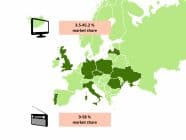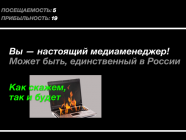 On November 16, UNESCO’s International Day for Tolerance, communication researchers from Riga Stradins University (RSU) presented the first aggression index of Internet commentaries in Latvia.
On November 16, UNESCO’s International Day for Tolerance, communication researchers from Riga Stradins University (RSU) presented the first aggression index of Internet commentaries in Latvia.
Researchers introduced a special method designed to provide a selection of aggressive and abusive key words while measuring the intensity of their usage in commentaries.
In an analysis of more than 65,000 words used in Internet commentaries, experts selected 900 key words displaying emotional aggression and abuse. Anda Rozukalne, the chair of RSU’s Communication Studies Department explained that the words were then divided into three groups: aggressive, mid-aggressive and very aggressive. Using a specially designed IT program developed by the Institute of Mathematics and Computer Science (University of Latvia), researchers then measured the intensity of the usage of these words.
Results collected from the first study (May 28, 2011 – October 30, 2011) on tvnet.lv, delfi.lv, apollo.lv, the three most popular Internet news sites in Latvia, showed that the most frequently used aggressive word in Internet commentaries is “kārt” (“to hang,” used 555,435 times). Other popular words with aggressive connotations were “uts” (“louse,” used 310,806 times), “šaut” (“to shoot,” used 296,917 times), “auns” (“to ram,” used 269,912 times), “āzis” (“to buck,” used 216,267 times), “sist” (“to beat,” used 168,360 times), “ciest” (“to suffer,” used 151,686 times), “karš” (“war,” used 131,191 times), “līķis” (“corpse,” used 112,213 times) and “āksts” (“fool,” used 106,583 times). These words reveal that many archaic forms of thinking and means of expression continue to exist in Latvia’s collective consciousness. Ilva Skulte, an Associate Professor at RSU further explained that this data might indicate that many people are feeling a desire for something akin to Lynch law, where commentaries are utilized to reckon with those believed to be in involved in suspected illegal actions without investigation or court proceedings.
Research shows that emotional aggression in commentaries follows as a reaction to separate news pieces mostly devoted to politics, political figures or loss in sports.
Overall, the three news media outlets analyzed for this study revealed that aggression levels were quite similar and that sudden increases in aggressive commentary were found to be equally distributed across all three sites. In addition, the study discovered that most of the aggressive commentary found in articles was directed towards the main character in the article, the author, or the media outlet responsible for publishing the article.
This research was conducted with the support of the Latvian Ombudsman’s Office and Friedrich Ebert Foundation. The aggression index used will continue to measure online media content on a monthly basis. In the future there will be a homepage devoted to the index which will also evaluate commentaries on news sites for Latvia’s Russian population.
Tags: Aggression Index, Anda Rozukalne, Ilva Skulte, International Day for Tolerance, Latvia, Lynch Law













































